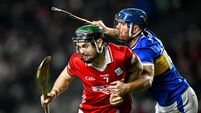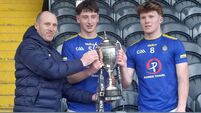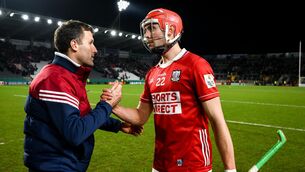Legend recalls rare old times
The host of RTÉ Sunday night’s Gaelic Sports results, the longest-running radio results service in the world, Ó Ceallacháin has just published “The Dubs”, a history of Dublin’s intercounty teams he describes as a “labour of love”.
The historian wasn’t always an observer, either; in the early seventies he was a participant.











